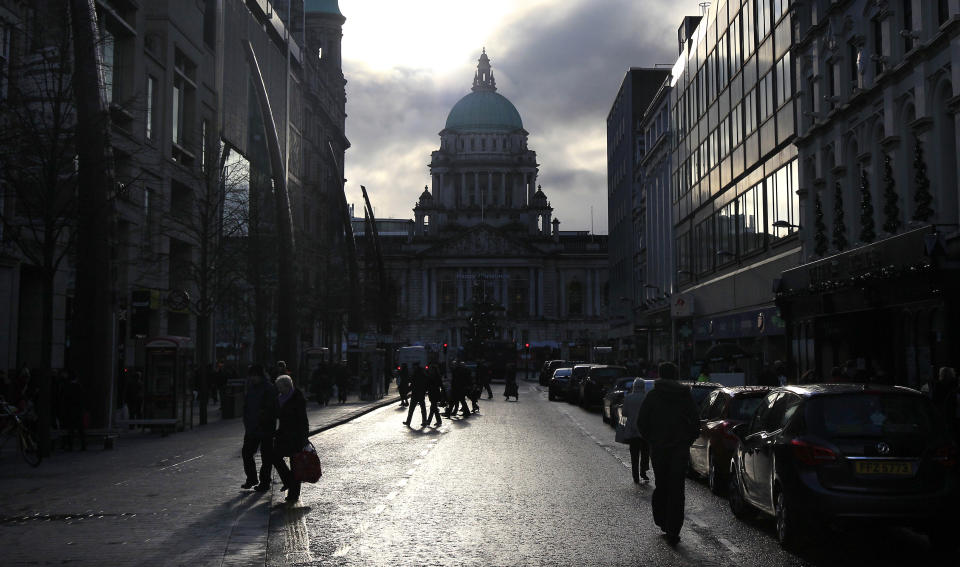Half of British and US firms predict 2020 recession as UK economy shrinks

Almost half of UK and US business leaders predict their country will fall into recession in 2020, a new survey suggests.
The bleak mood comes on the day official figures showed Britain’s economy unexpectedly shrank in the month before the general election as political uncertainty dented confidence.
Britain’s GDP went into reverse in November, falling 0.3% as services and production output both fell, according to the Office for National Statistics (ONS) on Monday.
Now a survey of more than 700 senior executives at medium- and large-sized firms in the UK, US and China highlights significant fears of a recession both domestically and across the globe. The figures were published by trade finance provider Stenn.
In Britain, 46% of business leaders predicted that at some point this year Britain would suffer a recession, meaning two successive quarters of falling GDP.
READ MORE: UK economy shrank significantly ahead of the general election
A third of UK leaders even thought the country would slide backwards across 2020 as a whole. Increased geopolitical tensions such as higher trade barriers, Brexit, and “regional instability” were highlighted as business’ main concerns.
It comes after Bank of England governor Mark Carney sent the pound falling last week by warning a rebound previously predicted by the bank was “not, of course, assured.”
He said a “relatively prompt response” could follow if evidence that economic weakness could persist builds, fuelling greater expectations of a cut to interest rates.
“The economy has been sluggish, slack has been growing, and inflation is below target,” he said in a speech.
Survey respondents in the US had a similar outlook, with 45% predicting a recession in 2020. But only 15%, much lower than in the UK, expected the country’s economy to be smaller at the end of 2020 than at the start.
There was also pessimism about the global outlook, with more than one in three UK (37%) and US (35%) executives expecting a global recession or global crisis in 2020.
READ MORE: Housebuilding boom helps UK construction grow at fastest pace in a year
It marked a striking contrast with Chinese business leaders, with 93% of respondents confident their economy would grow in 2020.
Dr Kerstin Braun, president of Stenn Group, said 2019 had proved weaker than expected, with the stakes “only higher” this year as US-China tensions continue despite apparent progress on trade talks.
She said UK prime minister Boris Johnson’s victory had provided “some much-needed solidity” by all but confirming Brexit would go ahead.
She added that it was vital UK firms began investing again to boost long-term growth, after a prolonged period where investment has been hampered by uncertainty.
But she warned many firms feared Brexit could still cause the economy to shrink in 2020, with uncertainty continuing as Britain’s future after a one-year transition period remains as unclear as ever.
The US was also “vulnerable to shocks” with personal, corporate, and government debt levels high, she said.
“While some fundamentals like employment are good, there are enough economic red flags to signal weakness in the second half of 2020.”

 Yahoo Finance
Yahoo Finance 